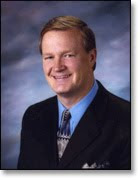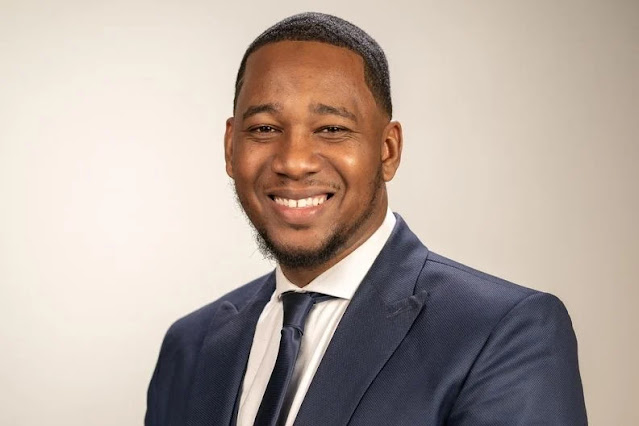Ohio Supreme Court Refuses To Hear Mason's Appeal Of Appellate Decision That He Produce Alleged Confidential Informant In Art McKoy Drug Case
Cuyahoga County Prosecutor Bill Mason
Community Activist Art McKoy
By Kathy Wray Coleman, Editor of the DeterminerWeekly.Com and
the Kathy Wray Coleman Online News Blog and Media Network
The Ohio Supreme Court on Wednesday denied leave to appeal and refused to hear an appeal sought by Cuyahoga County Prosecutor Bill Mason on behalf of the State of Ohio where the county prosecutor challenged a decision earlier this year by the Ohio Eighth District Court of Appeals. That decision supports a previous order by Cuyahoga County Court of Common Pleas Judge Nancy Margaret Russo, the trial judge in the case, for Mason to immediately give the attorneys for community activist Art McKoy the name of the alleged confidential informant against him so that they can prepare him for any trial relative to a pending drug case.
"Upon consideration of the jurisdictional memoranda filed in this case, the Court denies leave to appeal and dismisses the appeal as not involving any substantial constitutional question," wrote Ohio Supreme Court Chief Justice Eric Brown on behalf of the seven-member high court.
Local grassroots activists that have supported McKoy since the onset of the case were elated by the high court's rejection of Mason's appeal .
"We are pleased that justice may now be served and the charges against Art are misguided and inappropriate in the first place," said Don Bryant, leader of the People's Forum and President of the Immigrant Support Network."How can business owners, particularly barbers that rent out chairs, be responsible for everything that goes on in a business, including situations that they have no knowledge of?"
The case now goes back to the docket of Russo for a potential trial and with the requirement that Mason hand over the name of any confidential informant against McKoy immediately and before trial. A motion to dismiss the case for failure to provide the so-called confidential witness is pending before Russo, who can now rule since the appellate process has concluded around the controversial witness informant matter.
The 66-year-old McKoy is charged with a fifth degree felony count of permitting the sale of drugs in his now defunct Superfly Barbershop in East Cleveland, though the cases of the two barbers accused of dealing the alleged drugs are long over. All three were indicted in December of 2008 by a Cuyahoga County Grand Jury following a police raid at the barbershop. If convicted, the popular community activist faces up to a year in prison. McKoy has not been accused of dealing drugs and has pleaded not guilty to the pending charge.
In unsuccessfully asking Ohio's high court to hear his and the state's loss of the state appellate court decision Mason said in his memorandum in support of jurisdiction that by virtue of the inherent certification power of his office as prosecutor the names of alleged confidential informants can be withheld in McKoy's case, and otherwise, until after any trial begins if prosecutors certify, as they did relative to McKoy, that harm could come to the alleged informant or his family, though he failed to denote a shred of evidence that suggests that the laid backed McKoy would harm anyone. McKoy's attorneys, Rufus Sims and James Hardiman, argued that by withholding the name of any confidential witness until after trial starts, McKoy would be denied adequate time to prepare and thus, his constitutional right to a fair trial. And, community activists say that Mason's shenanigans are all a show since the cases of the other two defendants have long been resolved.
The case of Earl Nash, who pleaded not guilty to the charge that he dealt drugs out of McKoy's barbershop, was dismissed March 4 after prosecutors failed to produce an alleged confidential informant. And the case against Nash's former colleague, Leroy Sheets, who pleaded guilty early on, came to a close March 18 when following a judicial conviction he received a sentence of the 32 days in jail that he served after he was arrested in 2008.
Mason did not return phone calls seeking comment.

Community Activist Art McKoy

By Kathy Wray Coleman, Editor of the DeterminerWeekly.Com and
the Kathy Wray Coleman Online News Blog and Media Network
The Ohio Supreme Court on Wednesday denied leave to appeal and refused to hear an appeal sought by Cuyahoga County Prosecutor Bill Mason on behalf of the State of Ohio where the county prosecutor challenged a decision earlier this year by the Ohio Eighth District Court of Appeals. That decision supports a previous order by Cuyahoga County Court of Common Pleas Judge Nancy Margaret Russo, the trial judge in the case, for Mason to immediately give the attorneys for community activist Art McKoy the name of the alleged confidential informant against him so that they can prepare him for any trial relative to a pending drug case.
"Upon consideration of the jurisdictional memoranda filed in this case, the Court denies leave to appeal and dismisses the appeal as not involving any substantial constitutional question," wrote Ohio Supreme Court Chief Justice Eric Brown on behalf of the seven-member high court.
Local grassroots activists that have supported McKoy since the onset of the case were elated by the high court's rejection of Mason's appeal .
"We are pleased that justice may now be served and the charges against Art are misguided and inappropriate in the first place," said Don Bryant, leader of the People's Forum and President of the Immigrant Support Network."How can business owners, particularly barbers that rent out chairs, be responsible for everything that goes on in a business, including situations that they have no knowledge of?"
The case now goes back to the docket of Russo for a potential trial and with the requirement that Mason hand over the name of any confidential informant against McKoy immediately and before trial. A motion to dismiss the case for failure to provide the so-called confidential witness is pending before Russo, who can now rule since the appellate process has concluded around the controversial witness informant matter.
The 66-year-old McKoy is charged with a fifth degree felony count of permitting the sale of drugs in his now defunct Superfly Barbershop in East Cleveland, though the cases of the two barbers accused of dealing the alleged drugs are long over. All three were indicted in December of 2008 by a Cuyahoga County Grand Jury following a police raid at the barbershop. If convicted, the popular community activist faces up to a year in prison. McKoy has not been accused of dealing drugs and has pleaded not guilty to the pending charge.
In unsuccessfully asking Ohio's high court to hear his and the state's loss of the state appellate court decision Mason said in his memorandum in support of jurisdiction that by virtue of the inherent certification power of his office as prosecutor the names of alleged confidential informants can be withheld in McKoy's case, and otherwise, until after any trial begins if prosecutors certify, as they did relative to McKoy, that harm could come to the alleged informant or his family, though he failed to denote a shred of evidence that suggests that the laid backed McKoy would harm anyone. McKoy's attorneys, Rufus Sims and James Hardiman, argued that by withholding the name of any confidential witness until after trial starts, McKoy would be denied adequate time to prepare and thus, his constitutional right to a fair trial. And, community activists say that Mason's shenanigans are all a show since the cases of the other two defendants have long been resolved.
The case of Earl Nash, who pleaded not guilty to the charge that he dealt drugs out of McKoy's barbershop, was dismissed March 4 after prosecutors failed to produce an alleged confidential informant. And the case against Nash's former colleague, Leroy Sheets, who pleaded guilty early on, came to a close March 18 when following a judicial conviction he received a sentence of the 32 days in jail that he served after he was arrested in 2008.
Mason did not return phone calls seeking comment.









Comments